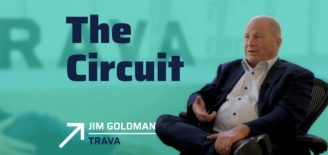How to make the freelance lifestyle work for you
In the second post of her three-part series, the founding partner and CEO of Torchlite, Susan Marshall, details how to incorporate lessons from entrepreneurs into your freelance lifestyle to maximize the investment in yourself.
Last time, we talked about how you can work like an entrepreneur, even if you aren’t one. Now, I’d like to talk about another type of entrepreneur: the freelance expert.
As the Co-Founder and CEO of Torchlite, a platform dedicated to connecting companies and expert digital marketers, I believe wholeheartedly in the strength of the freelance workforce. I see more and more quality talent abandoning the 9-to-5 grind for the flexibility and better work-life balance that the freelance life can provide. When I’m asked for advice on what to consider when beginning the freelance journey, particularly if you are a certified expert with years of experience, I always come back to the following points:
Charge What You’re Worth
I see freelancers lowball their rates all the time. Remember that even (or especially) if you’re working for yourself, your talent has value. If you don’t put the fair market price on that talent, no one else will do it for you. Don’t be afraid that your price quote will drive away potential clients: if your rate doesn’t align with what they want to pay, the work likely is not a good fit for you. Better to come to that realization upfront, rather than in the midst of a project where your work is not valued.
Invest in Yourself
I talk about the incredible quality of the freelance talent I see all day, every day. By going freelance, you have the opportunity to pick and choose which projects you’d like to pursue. When you’re doing so, you’re naturally going to gravitate towards a specific type or project or line or work — this is is the work that most inspires you, the work you do best. By becoming a freelancer, you have the incredible opportunity to pursue that specialization.
In turn, you have the responsibility to yourself and to your clients to become as knowledgeable about that subject as possible. If you’ve left a corporate job to freelance, you might find that you no longer have to sit in mind-numbing status meetings. Take the time you would have been spending on that and use it to hone your skills: go to a conference, get certified in a particular software, network with other professionals to stay abreast of trends. The investment in yourself will pay off.
Treat Yourself as a Business
Once you become a freelancer, make sure to arm yourself with the tools and people you need to manage your back office well. I see too many freelancers ignore how they bill, invoice and manage cash flow. You likely are not going to find the accounting process interesting or inspiring, but it matters: if you don’t bill correctly and on time, you won’t get paid.
Understand what your hourly rate looks like and take the time to figure out if you are hitting the goals you want to reach. There are lots of great and even free tools for time tracking, billing and invoicing. If you’re working with multiple clients and especially if you’re on an hourly rate, make sure you log your hours and monitor the time you’re working. Apps like Timely and Harvest can monitor it seamlessly and easily for you.
Remember that working for yourself can be incredibly hard some days, but if you’re like me, you’ll also find it incredibly fulfilling. In my next piece, I’ll talk about what to consider before taking things to the next level — launching your own company.
Discover recent news about Susan’s company, Torchlite.








































